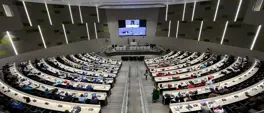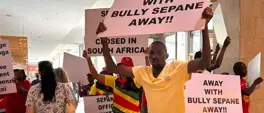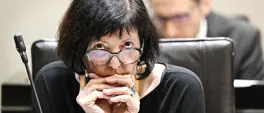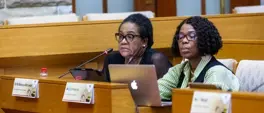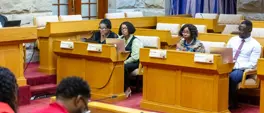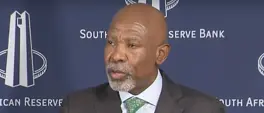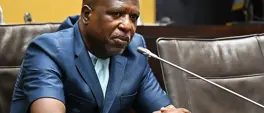Treasury stands firm on unaffordability of continued extension of SRD grant
Lindsay Dentlinger
31 May 2025 | 7:59It has budgeted R35.2 billion to pay the grant in this financial year, while also appealing a high court ruling that it relaxes its criteria for eligibility to include thousands more people.
CAPE TOWN - Treasury is standing firm on the unaffordability of the continued extension of the social relief of distress (SRD) grant introduced during the COVID-19 pandemic.
It has budgeted R35.2 billion to pay the grant in this financial year, while also appealing a high court ruling that it relaxes its criteria for eligibility to include thousands more people.
Delivering the second version of the budget in March, Finance Minister Enoch Godongwana announced that the grant would be extended for yet another year.
That is unchanged in the current version of the budget.
ALSO READ:
• SARS expects to see impact of increase in tax collection efforts from Q2
• Expanding list of tax-free food items won't benefit poorer households: Treasury
• Treasury defends fuel levy increase
However, responding to public submissions on the budget in Parliament on Friday, Treasury’s head of public finance, Rendani Randela, said that Treasury has no choice but to appeal January's high court ruling that it include thousands more to receive the monthly R370 stipend.
"That judgment is a fiscal risk on its own. And again, we are looking at the bigger picture here. Social assistance is not the only programme that we have, we also have other social assistance programmes outside the Department of Social Development."
With 61% of the national budget going towards the social wage, Randela said Treasury believes that the existing social support net covers many of those also eligible for the SRD grant and double-dipping has to be avoided.
Government is yet to take a decision on persistent calls from civil society for the SRD grant to become a basic income grant.
"There's no way that we can't have a mechanism to filter out undeserving recipients of these social assistance programmes. That's why we are appealing that judgment because the way it is, if we don’t challenge it, it is unaffordable."
Get the whole picture 💡
Take a look at the topic timeline for all related articles.



